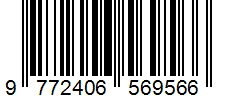Vocabulary Acquisition Strategies Applied by Junior High School Students
DOI:
https://doi.org/10.36232/interactionjournal.v12i1.2075Keywords:
Vocabulary, Preferences, Vocabulary Learning StrategiesAbstract
This study examines vocabulary learning strategies among eighth graders at SMP Negeri 2 Airmadidi during the first semester of the 2024/2025 school year. Using a descriptive quantitative approach, researchers collected data through a validated questionnaire assessing five strategy types: Determination, Social, Memory, Cognitive, and Metacognitive. A pilot test ensured the questionnaire’s reliability and accuracy. Findings indicate Memory Strategies were the most frequently used (2.951), closely followed by Metacognitive (2.927). In contrast, Cognitive Strategies ranked the lowest (2.415), likely due to their demanding nature, requiring higher mental processing. This suggests students favor methods that are easier to apply rather than those requiring deep analytical engagement. Given this preference, educators should incorporate Cognitive Strategy-based techniques to strengthen vocabulary retention and application. Methods such as problem-solving with real-life examples, analyzing word meanings in context, and creating mind maps can help students develop a deeper understanding of vocabulary. These strategies challenge learners to engage more actively with words, enhancing their ability to recall and use them effectively in communication. By blending various learning approaches, students can build stronger vocabulary skills that support both academic success and real-world language use.








